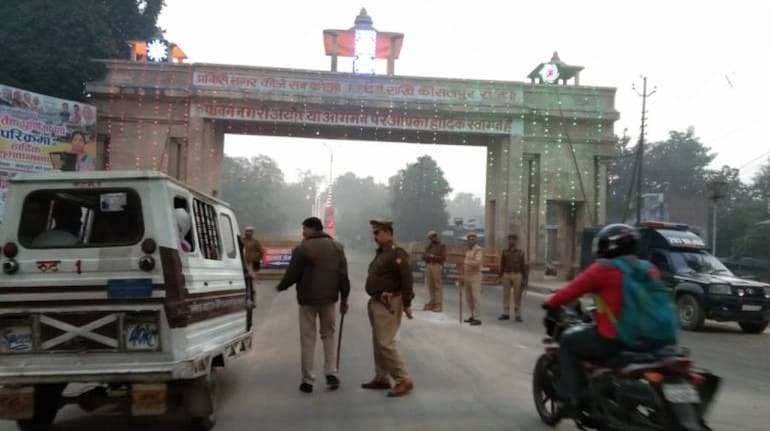



On November 9, the Supreme Court of India delivered a historic verdict bringing closure to a 134-years-old legal case and a nearly five-centuries-old civilisational dispute of epic proportions. The verdict has finally paved the way of the reconstruction of the temple dedicated to Ram, one of the most worshipped deities in India. The final round of the legal battle saw the daily hearing for 40 days. The Hindu side took 15 days to present its case while the Muslim side got 20 days to argue its case. Five days were given for the rebuttal of claims by both the sides.
The struggle of the Hindus to reclaim the lost sacred site spans centuries and is full of trials and tribulations where despite paying a heavy price they never let their devotion to the sacred site wither away. It was this devotion that led hundreds of thousands of Hindus to gather at the disputed site every year on the sacred days as recorded by foreign travellers such as Tieffenthaler, William Finch and Montgomery Martin. Little had they known that this little act of devotion shall one day become one of the grounds on which sacred site will be handed over back to the Hindus.
The Muslim case rested on the claim of adverse possession, i.e. by the virtue of a long, exclusive and continuous possession of the site the Hindu claim could be negated — and this fell flat. What most people miss about the Ram Janambhoomi case is that it’s a title suit, and in a title suit one has to establish ownership. The Muslim side failed to legally and historically prove their case and hence lost the case.
On the other hand, the Archaeological Survey of India (ASI) excavation report proves the existence of the older structure beneath the mosque, which could have probably been a Vaishnavaite temple given the symbols and iconography revealed in excavation. No wonder that under the weight of the archaeological, textual, historical, and circumstantial evidence, the scales tilted in the favour of the claims made by the Hindu side.
From the Hindu perspective this is a moment of the long-awaited justice. However, the reaction is that of a dignified restraint from the Hindus and the gracious acceptance by the Muslims as both realise that there is no victory or defeat in such cases, but only solutions.
With this an old civilisational dispute has been put to rest. The dispute has taken a heavy toll on India, including loss of countless lives over centuries. What is special about this was that it was finally resolved through reasoned arguments and not through brute force on the streets as has mostly been the case around the world in such religious disputes.
This has set a new standard for resolution of such religious disputes and contestations inherited from the past. It also shows that the real solutions can be found not by falsification or whitewashing history, but by honest acknowledgement of the historic wrongs and attempts to redress them. Only when the records are set straight can historical disputes be resolved, and reconciliation become a possibility. That is the only way to set the future generations free of the shackles of the past disputes.
In the Ram Janambhoomi case, for too long arrogant denials prevented an honest discussion between Hindus and Muslims. The falsification of history misled the Muslim masses into believing that their claim was just and true. Had this not been the case, perhaps a rapprochement could have been reached in the 1980s itself — of not just this case, but of other disputed sites as well. That would have spared the country many riots, vicious politics and bitterness associated with it.
The very fact that the five judges’ bench has given a unanimous decision has left little room for controversy and confusion. Even then there are some trying to spread the misinformation that the judgment is based on the ‘blind faith’ of Hindus and fails to do ‘justice’. It is a deliberate attempt to ingrain a sense of being cheated and victimhood among the Muslim youth. One hopes that the government will undertake the wider dissemination of the judgment, explaining in simple language the case, evidences and reasoning of the judgment.
Abhinav Prakash Singh is assistant professor, Shri Ram College of Commerce, University of Delhi, Delhi. Views are personal.
Discover the latest Business News, Sensex, and Nifty updates. Obtain Personal Finance insights, tax queries, and expert opinions on Moneycontrol or download the Moneycontrol App to stay updated!
Find the best of Al News in one place, specially curated for you every weekend.
Stay on top of the latest tech trends and biggest startup news.